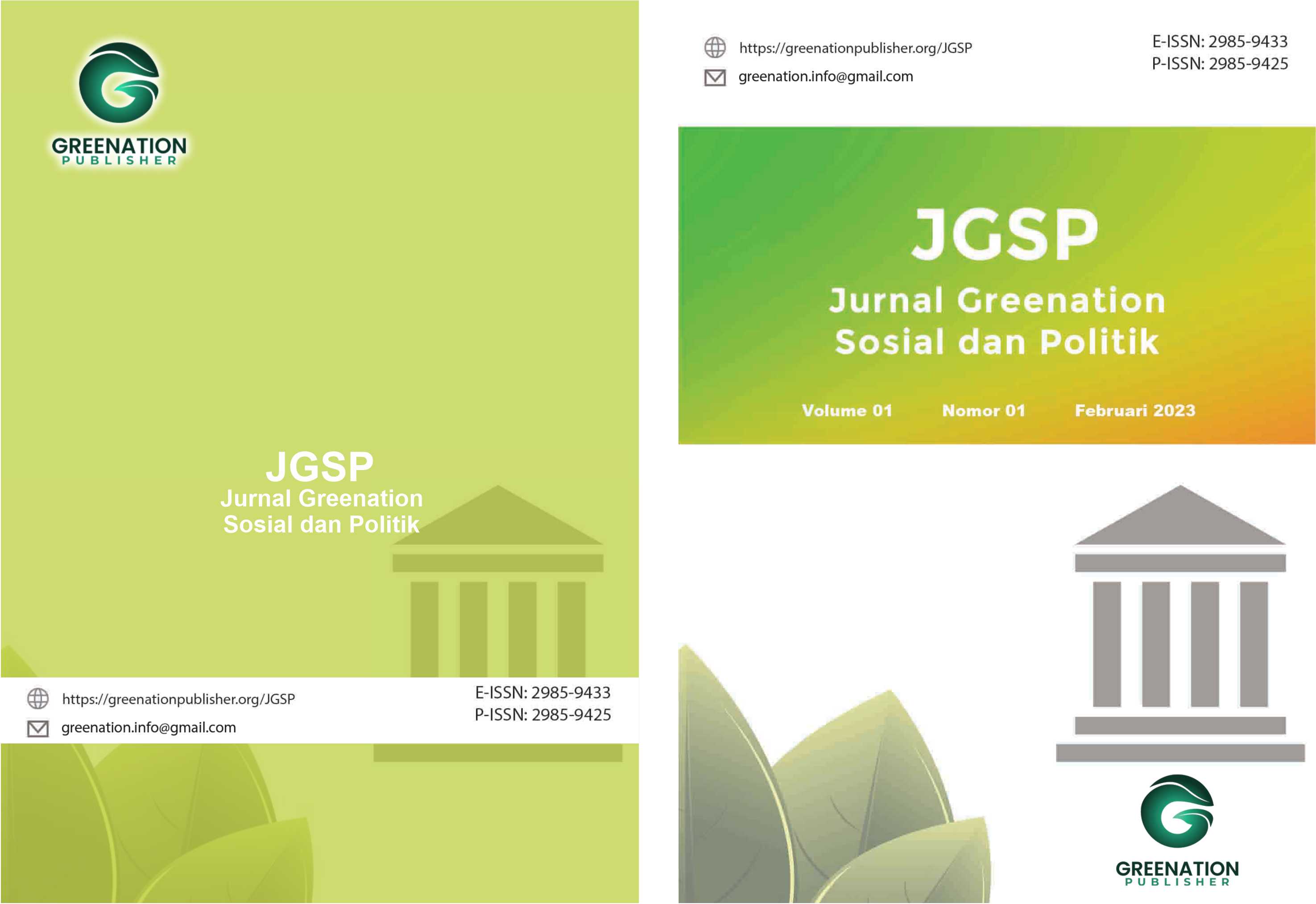The Urgency of Resolving Indonesian Migrant Worker Cases through Restorative Justice Originated to The National Criminal Code
DOI:
https://doi.org/10.38035/jgsp.v3i2.368Keywords:
Restorative Justice, Effective Resolution, Role of the PartiesAbstract
Indonesia has the fourth largest population in the world. With such a large population, some of the population seeks work abroad because the number of jobs in the country is inadequate. However, finding a job is not as smooth as imagined , but many of them become conflicts. Based on statistical data from the Ministry of Foreign Affairs, it was revealed that in the period from 2020 to March 2024, at least 3,703 Indonesian citizens (WNI) became victims of Online Scamming crimes, where around 40 percent of them were identified as victims of Human Trafficking (TPPO). Meanwhile, based on data from the Criminal Investigation Unit of the National Police Headquarters, throughout 2023, the Indonesian National Police (Polri) has handled 1,061 TPPO cases with a total of 3,363 victims. However, on the other hand, many Indonesian Migrant Workers who work abroad through placement agents need a solution that is felt to be humane to the victims. With the existence of Law No. 18 of 2017 concerning the Protection of Migrant Workers, there is no protection that can be directly felt by victims who directly feel the losses they experience. In Article 85 (a) Jo. Article 71 a which is only oriented towards punishment and fines for perpetrators of criminal acts whose benefits cannot be felt by the victim. Therefore, there needs to be a more effective solution through Restorative Justice, namely a solution that involves all parties, both the perpetrator, the victim and also the state as a forum to facilitate the agreed settlement so that the victim can feel direct and fast recovery from the perpetrator and by involving the state as a forum that bridges it so that if the Restorative settlement is not resolved by the parties, it can be prosecuted as a last resort. That the purpose of this study suggests a resolution of the conflict between labor supply agencies/corporations and victims of Indonesian Migrant Workers abroad based on Restorative Justice so that the impact of recovery can be felt directly by the victim. In this study, the researcher used the Empirical Juridical method, Juridical which was taken from library materials, legislation, written articles, both journals and articles related to Indonesian migrant workers. From an empirical perspective, the researcher took the researcher's experience in handling Indonesian migrant worker cases and interviews with senior prosecutors who had handled Indonesian Migrant Worker cases.
References
Alemika, Emily, and Ibe Okegbe Ifeakandu. “An Examination of the Elements of Transportation, Enslavement and Exploitation in Trafficking in Human Beings under International and Nigerian Anti-Trafficking Laws.” Beijing Law Review 10, no. 04 (2019): 1116–35. https://doi.org/10.4236/blr.2019.104060.
Andriawan, Wawan. “Pancasila Perspective on the Development of Legal Philosophy: Relation of Justice and Progressive Law.” Volksgeist: Journal of Law and Constitutional Studies 5, no. 1 (June 29, 2022): 1–11. https://doi.org/10.24090/volksgeist.v5i1.6361.
Efendi, Jonaedi, and Prasetijo Rijadi. Normative and Empirical Legal Research Methods . Kencana 2nd Edition, 2016.
Elviandri, Elviandri, and Ali Ismail Shaleh. “Protection of Indonesian Migrant Workers During the New Normal Adaptation Period in Central Java Province.” Journal of Indonesian Legal Development 4, no. 2 (May 31, 2022): 245–55. https://doi.org/10.14710/jphi.v4i2.245-255.
Law, Discourse. “Efforts to Prevent Criminal Acts of Human Trafficking (“ IX, no. April (2010): 107–20. https://doi.org/https://doi.org/10.33061/wh.v9i1.308.
Johannes, Andre Edwin, Bevaola Kusumasari, Agus Heruanto Hadna, and Nunuk Dwi Retnandari. “Human Trafficking: A Systematic Review and Future Research Agenda.” JKAP (Journal of Public Policy and Administration) 27, no. 2 (December 15, 2023): 107. https://doi.org/10.22146/jkap.84709.
“The Effectiveness and Challenges of Restorative Justice Implementation in the Components of the Indonesian Criminal Justice System,” 2024, 1–21.
Kharisma, Dona Budi. “Optimizing Village Government in Protecting Indonesian Migrant Workers.” Rechts Vinding: National Legal Development Media 12, no. 1 (2023): 77–85. https://doi.org/http://dx.doi.org/10.33331/rechtsvinding.v12i1.1117.
Liebmann, Marian. “Bristol: Working Together to Resolve Conflict and Repair Harm.” The International Journal of Restorative Justice 2, no. 2 (September 2019): 298–302. https://doi.org/10.5553/IJRJ/258908912019002002008.
Nugroho, Alifianissa Puspaningtyas. “RESTORATIVE JUSTICE: THE REALIZATION OF THE PRINCIPLE OF JUSTICE AND THE PRINCIPLE OF LEGAL CERTAINTY IN POLICE INSTITUTIONS.” Recidive: Journal of Criminal Law and Crime Prevention 12, no. 2 (October 11, 2023): 218. https://doi.org/10.20961/recidive.v12i2.71620.
Rahardjo, Satjipto. “LEGAL EDUCATION AS HUMAN EDUCATION.” LAW REFORM 1, no. 1 (January 1, 2006): 1. https://doi.org/10.14710/lr.v1i1.12176.
Ribut Baidi Sulaiman. “Restorative Justice: Implementation of Criminal Justice Policy in the Indonesian Criminal Law System.” Indonesian Criminal Law Review 2, no. 1 (2023).
Simarmata, Jorawati. “Normative Juridical Study of Regulatory Urgency Use of Local Labor in the Regions.” Jurnal Ketenagakerjaan 19, no. 1 (April 30, 2024): 48–68. https://doi.org/10.47198/jnaker.v19i1.331.
Suzuki, Masahiro, and Xiaoyu Yuan. "How Does Restorative Justice Work? A Qualitative Metasynthesis." Criminal Justice and Behavior 48, no. 10 (October 20, 2021): 1347–65. https://doi.org/10.1177/0093854821994622.
Teguh Prasetyo. Dignified Justice: Legal Theory Perspective . Dignified Justice: Legal Theory Perspective . Nusa Media, 2017.
Space, Victimology, Rajagrafindo Persada, 1st ed., Purwokerto, 2000.
Bernard L. Tanya, Legal Theory of Human Order Strategy Across Space and Generations, 4th ed., Yogyakarta, 2013.
Donald Black, The Behavior of Law, Pelangi Cendikia, 2nd Edition, Jakarta, 2024.
Teguh Prasetyo, Dignified Justice from the Perspective of Legal Theory, 2nd Edition, Bandung, 2022.
Law No. 1 of 2008 concerning the protection of Indonesian Migrant Workers.
National Criminal Code
Downloads
Published
How to Cite
Issue
Section
License
Copyright (c) 2025 Hevben

This work is licensed under a Creative Commons Attribution 4.0 International License.
Hak cipta :
Penulis yang mempublikasikan manuskripnya di jurnal ini menyetujui ketentuan berikut:
- Hak cipta pada setiap artikel adalah milik penulis.
- Penulis mengakui bahwa Jurnal Greenation Sosial dan Politik (JGSP) berhak menjadi yang pertama menerbitkan dengan lisensi Creative Commons Attribution 4.0 International (Attribution 4.0 International CC BY 4.0) .
- Penulis dapat mengirimkan artikel secara terpisah, mengatur distribusi non-eksklusif manuskrip yang telah diterbitkan dalam jurnal ini ke versi lain (misalnya, dikirim ke repositori institusi penulis, publikasi ke dalam buku, dll.), dengan mengakui bahwa manuskrip telah diterbitkan pertama kali di JGSP.
























